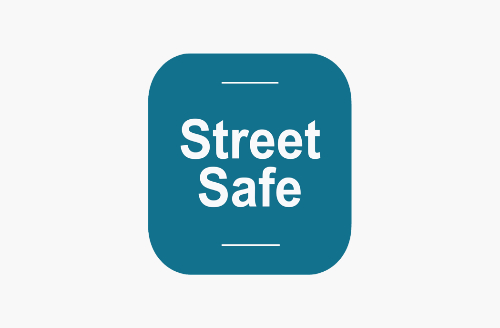Anti-social behaviour
Page updated on: 30/04/2025
The Crime and Disorder Act (1998) defines anti-social behaviour (ASB) as “acting in a manner that causes or is likely to cause harassment, alarm or distress to one or more persons not of the same household as (the complainant)”. ASB can include a wide range of actions such as harassment, damage to property, vandalism, drunken and rowdy behaviour and noise nuisance. What is certain is that ASB makes life a misery for very many people in our community. It may be difficult to tackle, but the Community Safety Partnership is determined to give priority to this vitally important area of work.
Examples of anti-social behaviour can include noise nuisance, harassment, fly-tipping, alcohol abuse, illegal trading, racist and hate incidents, substance misuse, violence, graffiti, abandoned vehicles, litter and dog fouling. If you wish to make a complaint about ASB you should contact the relevant agency, such as the Police or a Council department. If you are affected by the following please contact Dyfed Powys Police on 101 (999 emergency only):
- Criminal behaviour
- Domestic violence
- Hate crime
- Harassment
The way we tackle ASB and the powers available ensure that the victim is at the heart of the response to anti-social behaviour and that professionals have the flexibility needed to deal with the many different situations that ASB presents.
Anti-Social Behaviour Case Review
What is it?
In 2014, the Home Office published reformed guidance to support the effective use of new powers to tackle anti-social behaviour (ASB), which included a new measure called ASB Case Review. This allows victims of persistent ASB to request a review of their case, and hold agencies to account for the way in which ASB is tackled. In order to meet the threshold to activate the ASB Case Review, the applicant must have:
- reported three separate incidents relating to the same problem in the past six months to the Council, Police or landlord where no effective action has been taken; or
- reported one incident or crime motivated by hate* (due to race, religion, disability, sexual orientation or transgender identity to the police in the last six months where no effective action has been taken;
Each report must be made within 30 days of the incident occurring and the application for the review must be made within 6 months of the first report.
A report made to several agencies at or around the same time regarding the same incident, will be classed as one report.
It is not intended to review historical cases, or those only recently reported whereby agencies have not had a reasonable opportunity to respond.
*Hate crime is defined as any criminal offence committed against a person or property that is motivated by hostility towards someone based on their actual or perceived disability, race, religion, gender identity or sexual orientation, which is a factor in determining who is victimised. A victim does not have to be a member of a group and in fact, anyone could be a victim of hate crime.
How can I use the ASB Case Review?
Across the Dyfed-Powys region, Dyfed-Powys Police are the single point of contact. An application can be made online, over email, by calling 101 or by requesting an application form in writing. For further details, visit the Dyfed-Powys Police website. It is not only the victim themselves who can use the ASB Case Review, although their consent must be sought by the person prior to application. Once consent has been obtained, the ASB Case Review can be used by any person such as a family member, friend, carer, councillor, Member of the Senedd, Member of Parliament or any other professional person on behalf a victim. The ASB Case Review can be used by a person of any age.
What happens next?
Once a request to use the ASB Case Review has been received, the applicant will receive an acknowledgement letter within 5 working days. Agencies will consider the application and get back in touch with the victim within 15 working days to inform them if they have met the threshold. If it is agreed that the threshold has been met, partner agencies will undertake a case review during which information relating to the case including any previous action taken will be considered, and a decision made as to whether additional actions are possible. The application will be notified of the outcome of the panel review. An appeal can be made to the Office of the Police and Crime Commissioner (OPCC) where one of the following measures is satisfied;
- The decision provided outlining why the case did not meet the threshold for a ASB Case Review has failed to provide sufficient detail to understand why a review did not take place.
- The ASB Case Review has failed to consider a relevant process, policy or protocol.
- The ASB Case Review has failed to consider relevant factual information.
Appeals must be made to the Office of the Police and Crime Commissioner (OPCC) within 28 days. The 28 days will start from the date of either;
- The letter informing the applicant their application has not met the threshold for a case review;
- The letter informing them of the outcome of a case review.
Carmarthenshire data for the period 1 January 2022 to 31 December 2022
Number of ASB Case Reviews received: 3
Number that did not meet the threshold: 1
Number of case reviews held: 2
Number of case reviews with recommendations made: 2

